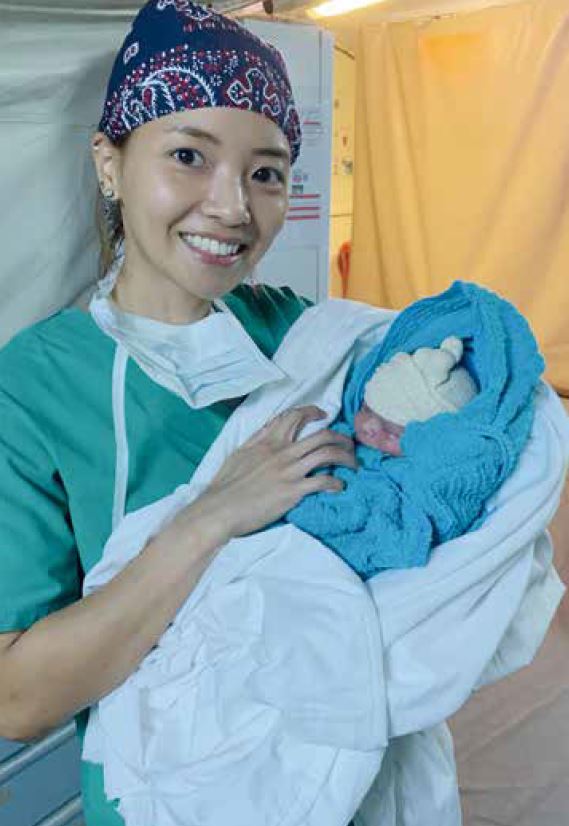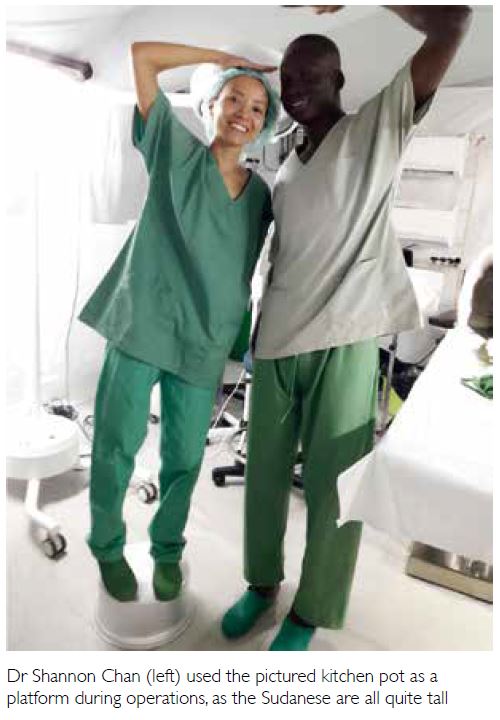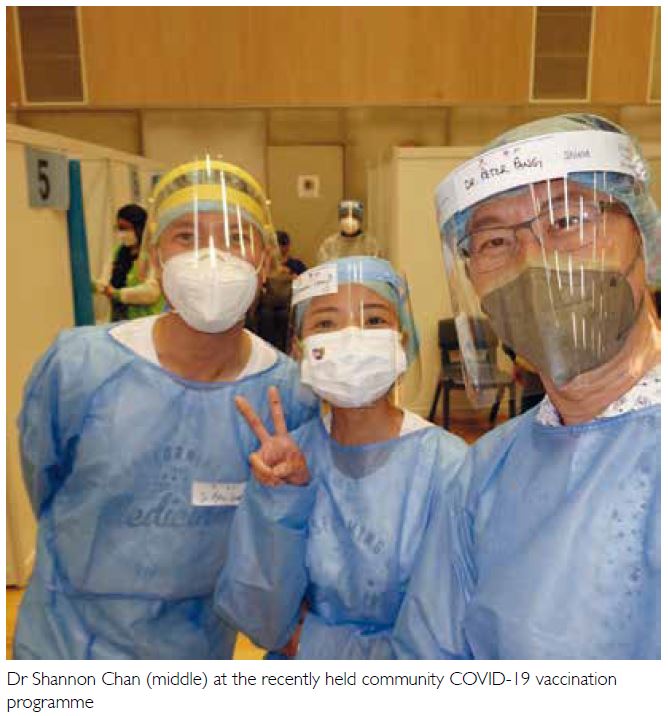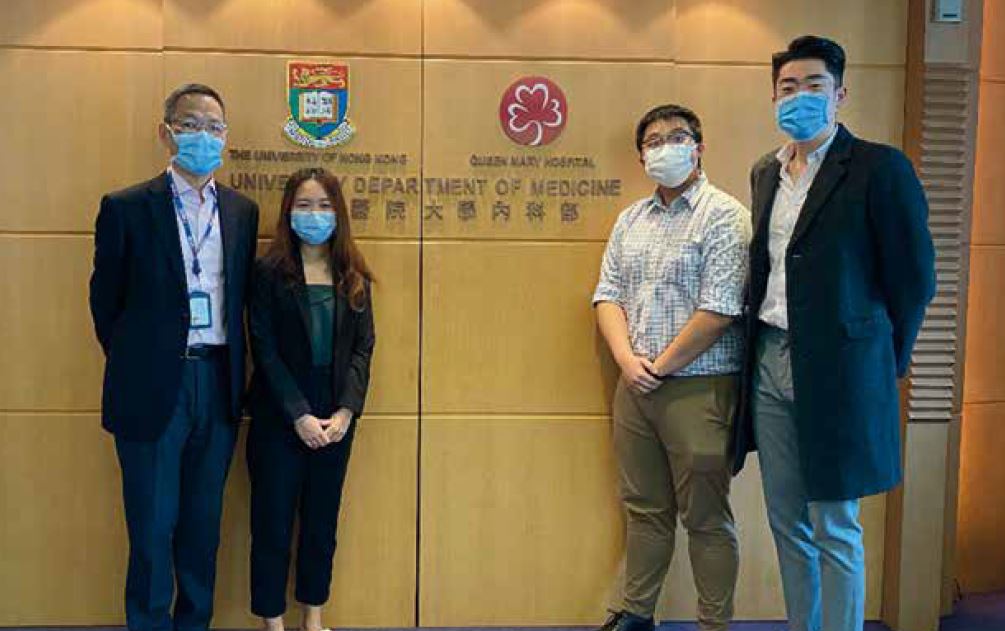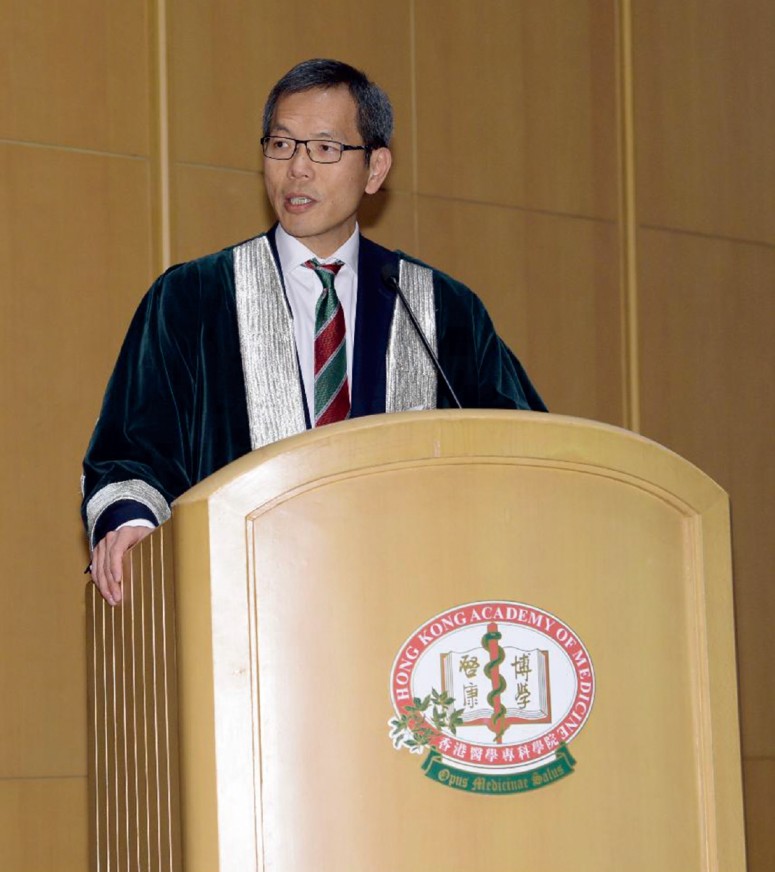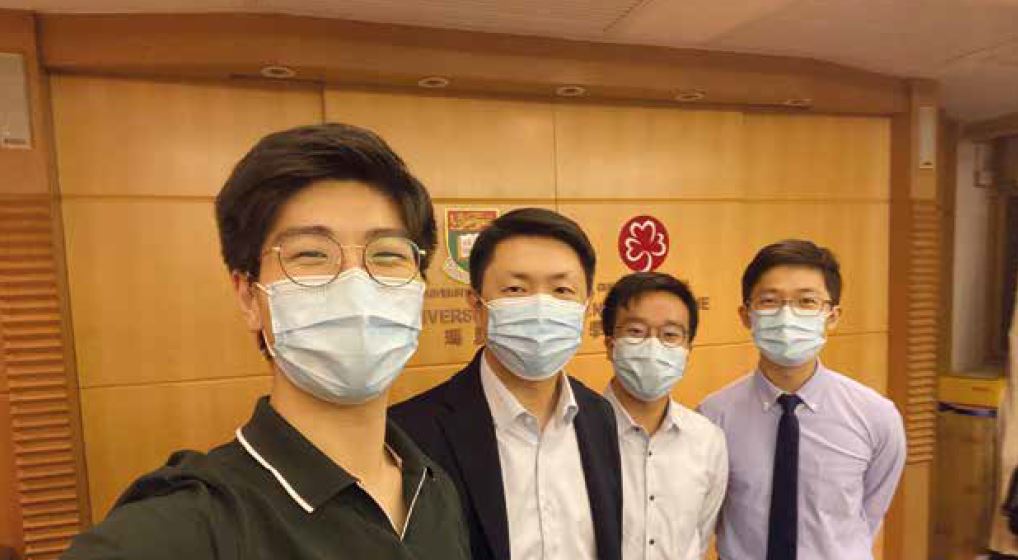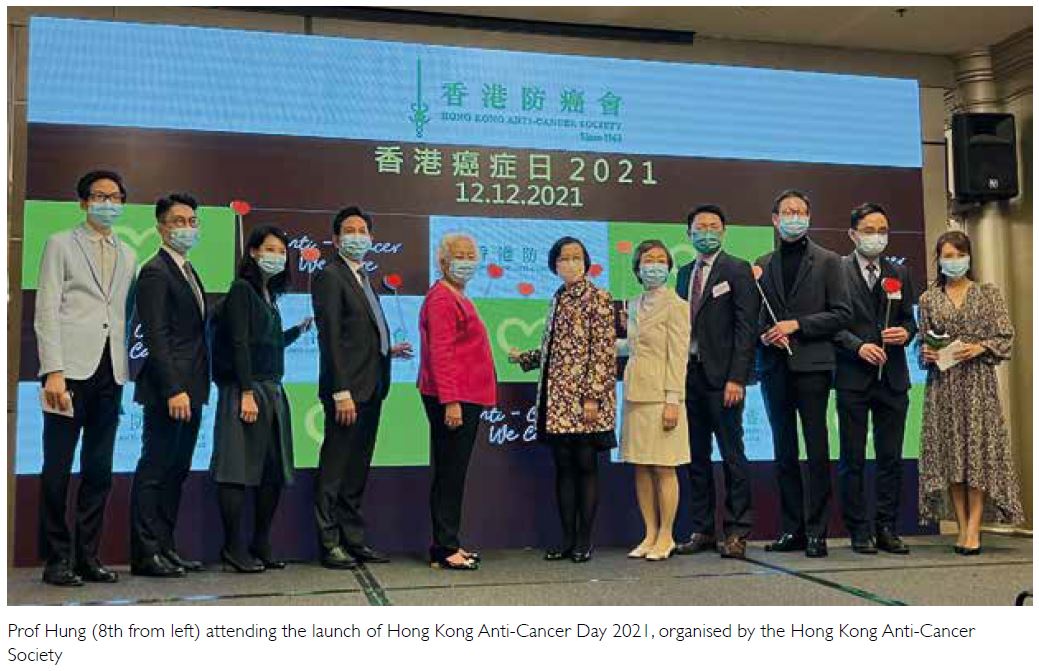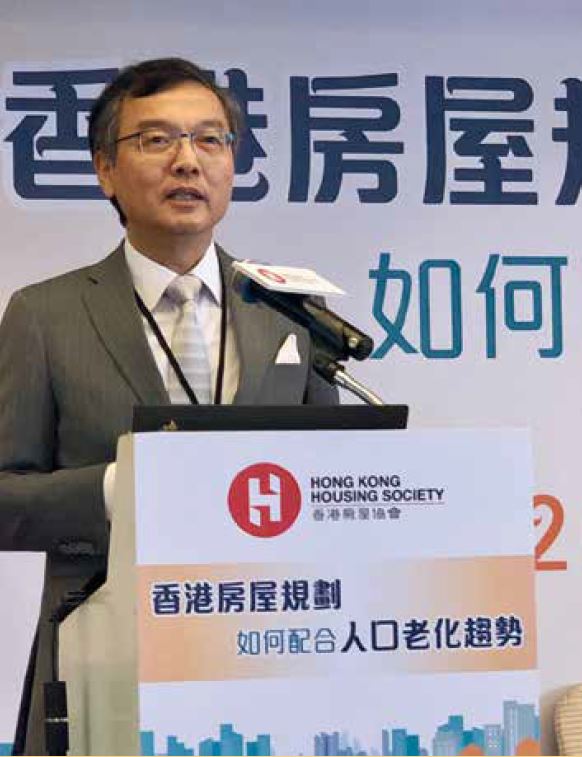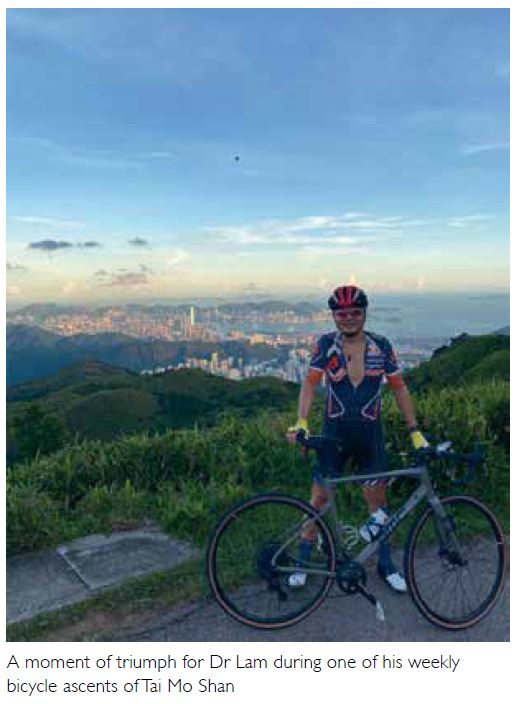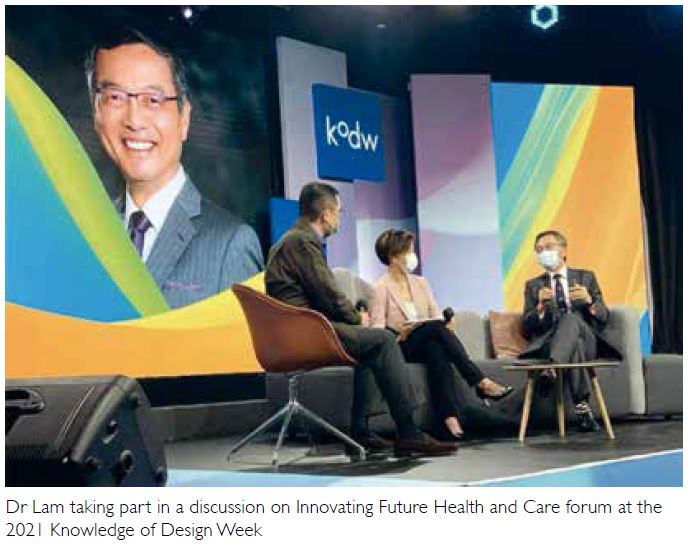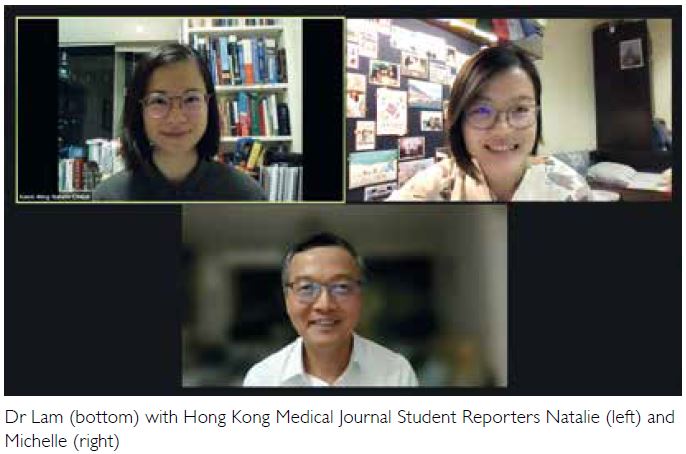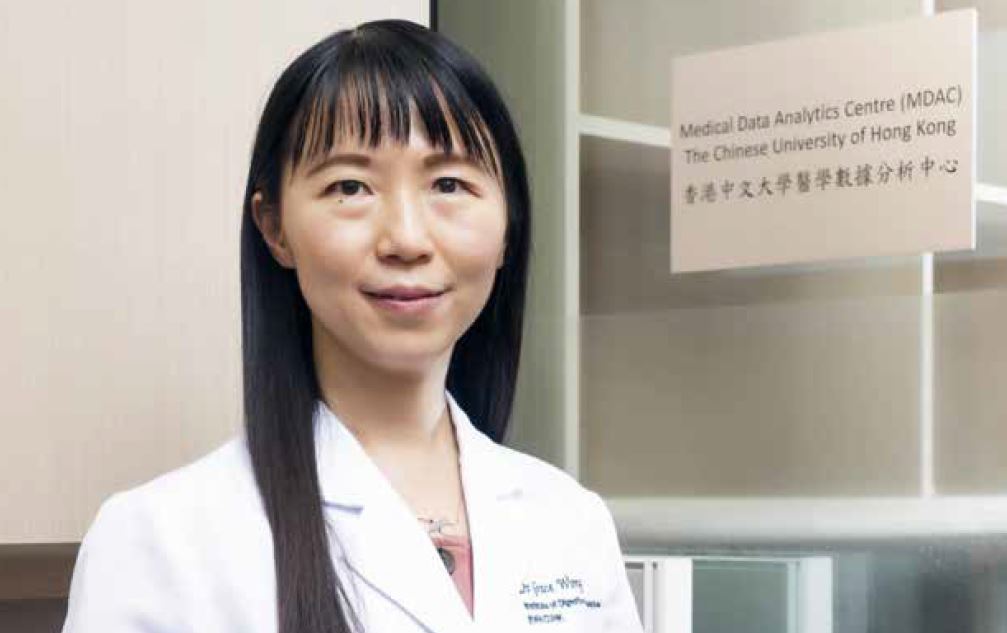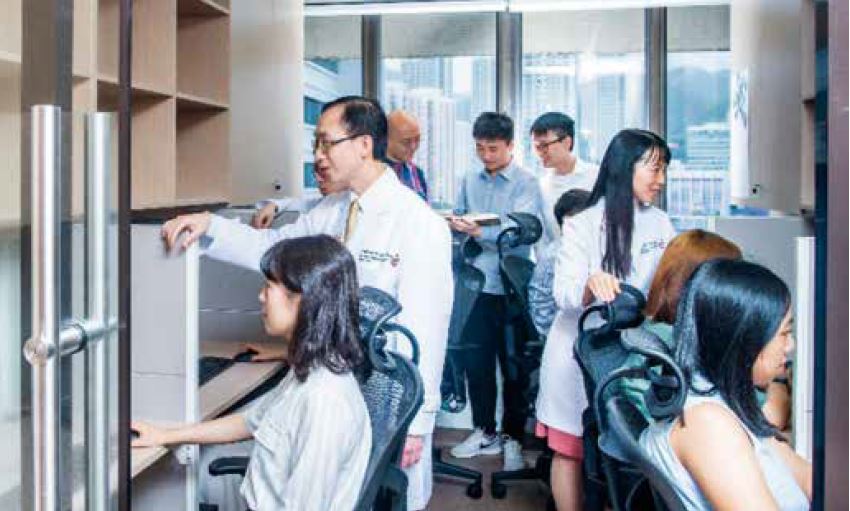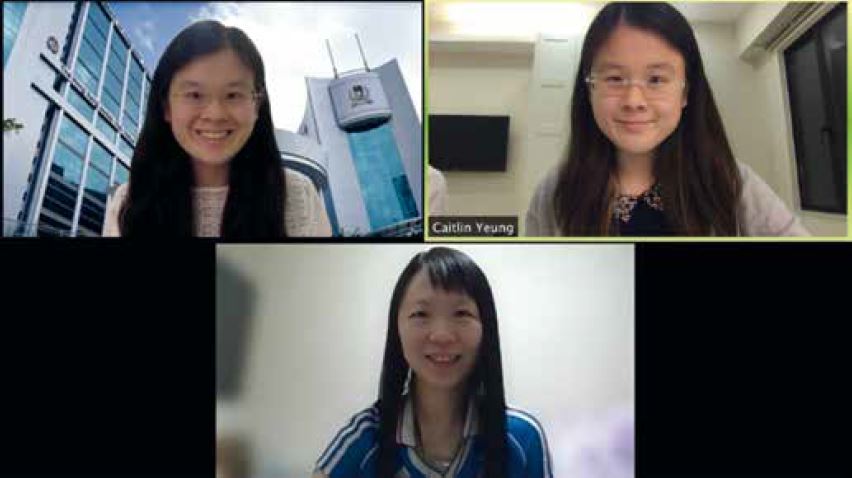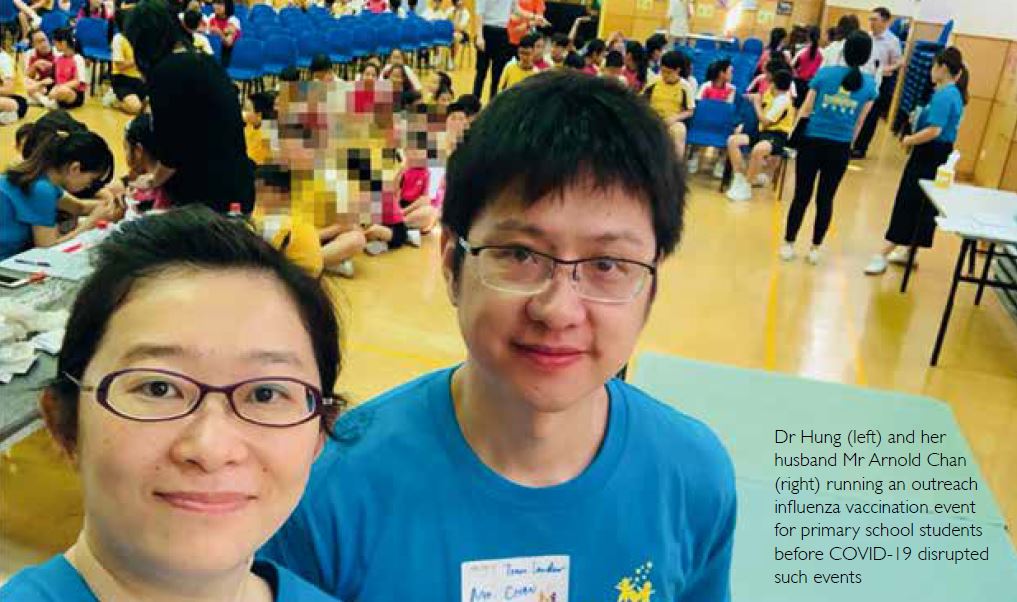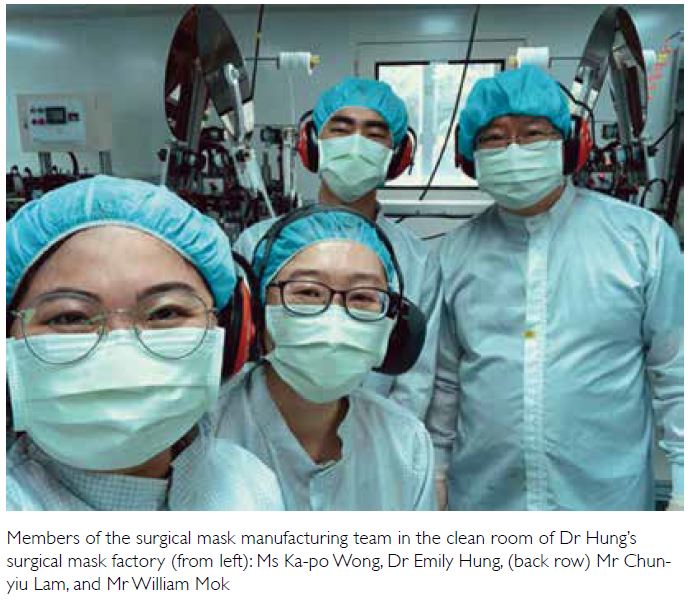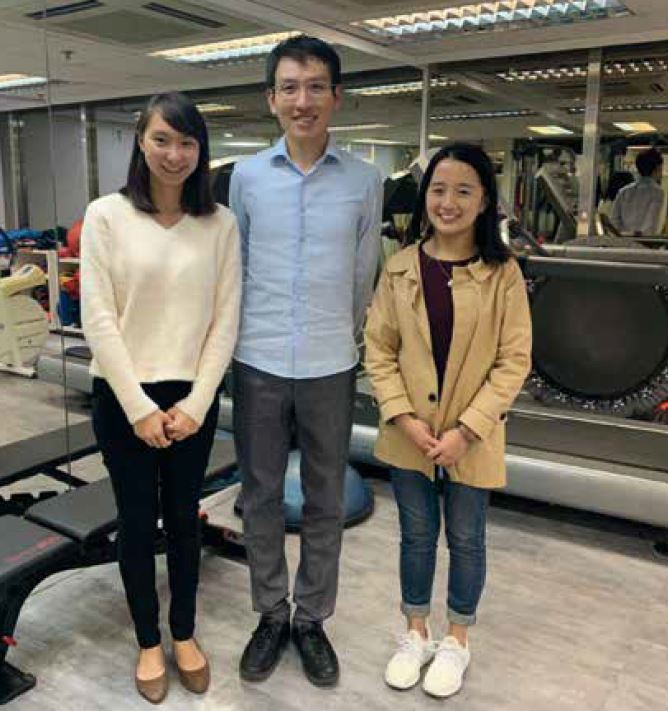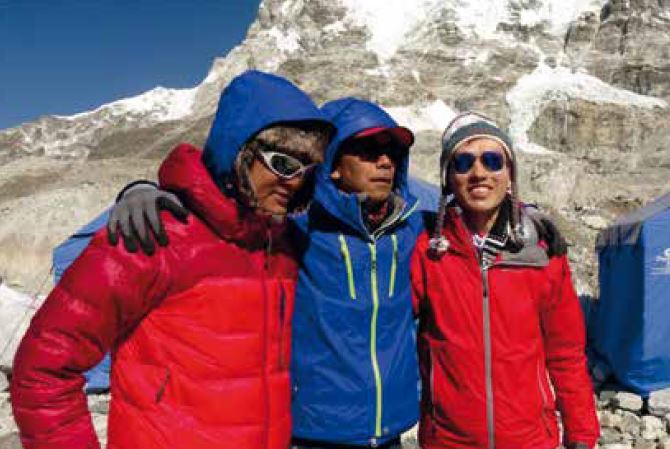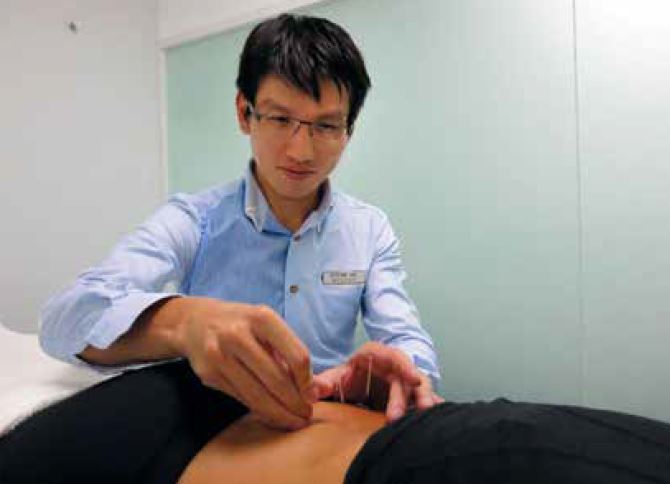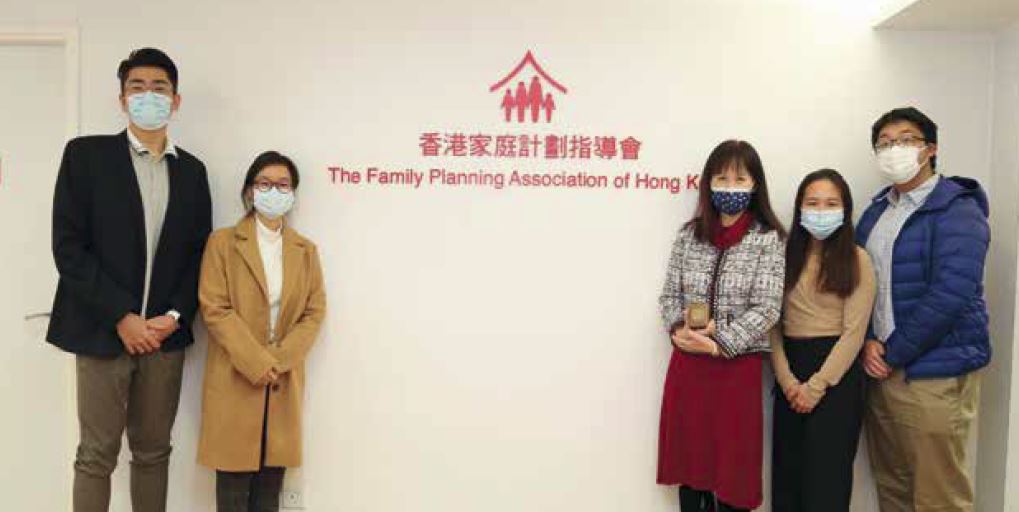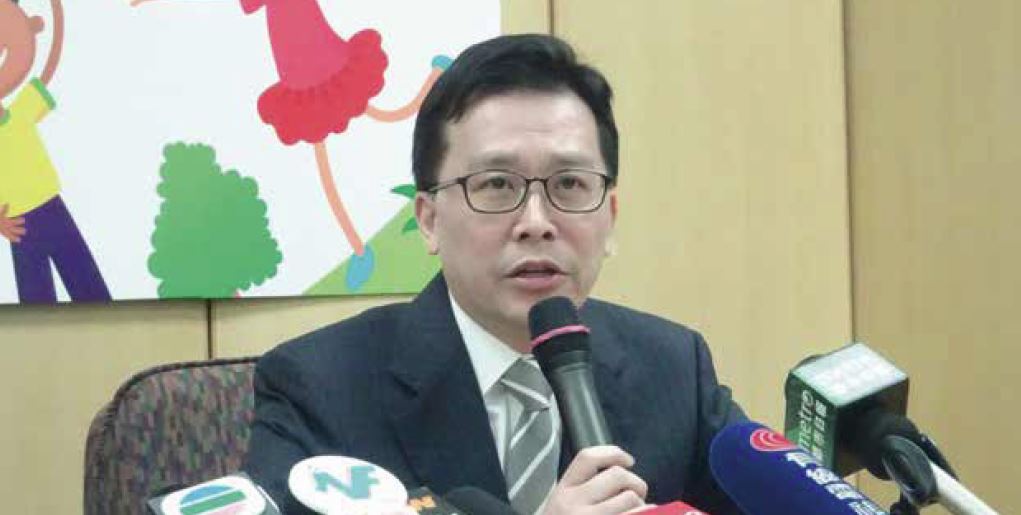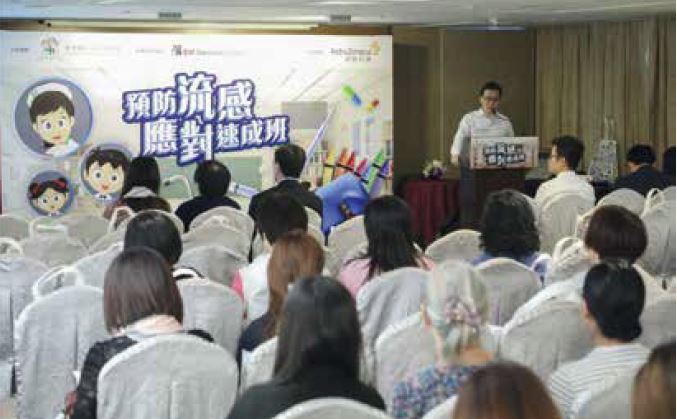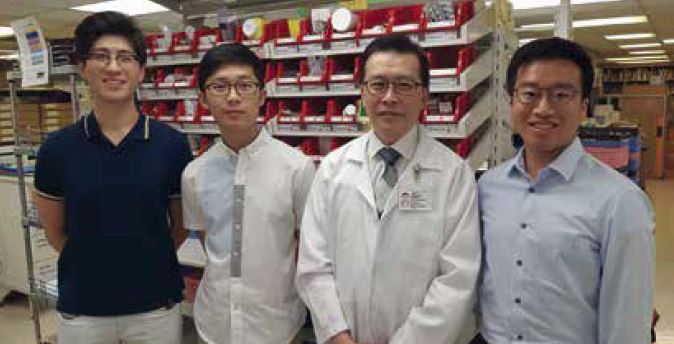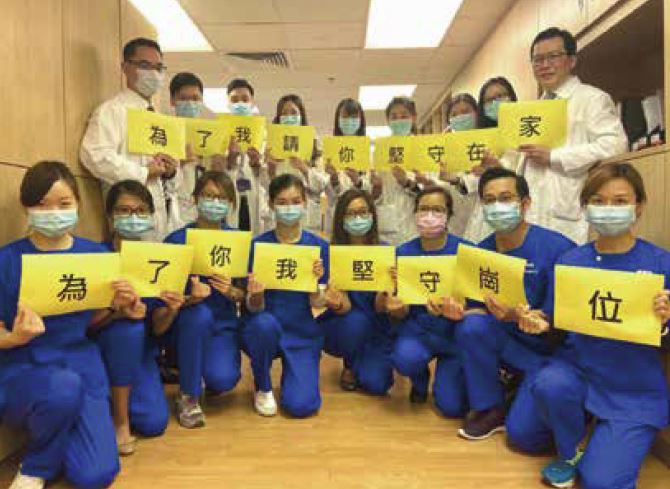Services make our community a better place to live: an interview with Dr Yu-cheung Ho
© Hong Kong Academy of Medicine. CC BY-NC-ND 4.0
HEALTHCARE FOR SOCIETY
Services make our community a better place to live: an interview with Dr Yu-cheung Ho
Waylon Chan1, Apple Lo2, Katherine Wong3
1 Department of Psychiatry, Castle Peak Hospital, Hong Kong
2 Department of Anaesthesiology, Tseung Kwan O Hospital, Hong Kong
3 Department of Radiology, North District Hospital, Hong Kong
Coming from a humble background, Dr Yu-cheung
Ho experienced first-hand the struggles
confronted by a community in poverty, which were
so common to many of those brought up in those
days. The poverty issue, compounded by the many
other problems that an impoverished community
suffers, exacerbate the difficult situations most of
the then residents faced. Because of his upbringing
in a challenging environment, Dr Ho developed an
interest in helping others, and this was an influential
factor in his future work.
Having decided that medicine is one of the
better ways to make a direct and positive impact on
society, and being interested in the subject matter
itself, Dr Ho committed to studying medicine and
later graduated from The University of Hong Kong
medical school in 1982. With a particular interest in
hands-on procedures, he found that surgery was a
natural fit and later pursued specialisation in urology.
After graduating, he served in the public healthcare
sector, and after many years of service, he continued
his work in the private sector.
The First Rotary Club in Hong Kong, The Rotary Club of Hong Kong, was established in
1931. Since then, Rotary International District 3450
(https://rotary3450.org/) has expanded so that it
now encompasses 105 Rotary Clubs throughout
Hong Kong, Macau, Mongolia, and Guangdong.
The Rotary Club endeavours to bring together
local business and professional leaders to provide
humanitarian work. Over the past few decades, the
demands of humanitarian work have broadened in
scope, and the challenges have become increasingly
global, from pandemics affecting third-world
countries to food crises afflicting war-torn regions.
To cope with these changing times, the Rotary
Club has expanded rapidly across regions, building
goodwill for global and local communities and
following its motto ‘service above self’.
Dr Ho, who has a keen interest in humanitarian
work and a passion for helping others, was introduced
to be a member of the Rotary Club of Peninsula
South by his friends and colleagues. ‘It was its hands-on
nature, and the emphasis on being non-political,
non-religious, and non-commercial that intrigued
me at first,’ Dr Ho stressed when explaining his interest in Rotary. ‘We can leverage the strong bonds
among various Rotary Clubs worldwide, allowing
us to reach out and go further both globally and in
local communities.’ Dr Ho holds polio eradication
as an example of a global campaign that Rotary
has been involved in, where efforts at the local
level are supported by coordination internationally,
humanitarian issues are best solved with a global
framework with devolved local execution.
Since becoming a Rotarian in 1994, Dr Ho
has been involved in implementing and delivering
various service projects locally and internationally
in collaboration with local and overseas Rotarians.
One of the more memorable projects that Dr Ho
recalled involved providing better surgical care in
acute hospitals in Mongolia. Owing to the outdated
facilities and equipment and lack of funding, the
hospitals were ill-equipped to serve the growing
demand of surgical patients. Leveraging expertise
from Hong Kong, and coordinating help from doctors
from India, Rotary revamped both the laparoscopic
instruments and facilities and the surgical skill
training of the local surgeons over there. Another
project in Mongolia that Dr Ho was involved in was improving a hospice care centre in Ulaanbaatar to
cope with the increasing demand of cancer patients.
In 2018-19, Dr Ho served as the District
Governor of the Rotary International District
3450. While serving as District Governor, Dr Ho
was particularly enthusiastic about broadening the
opportunities for the young and providing a better
future for the neglected and disenfranchised groups
in local society. He also oversaw a ‘pair-up project’—jointly hosted with the Salvation Army—to provide
career and life planning for marginalised secondary
school-leavers who were failing in further studies. By
pairing students with Rotary Club members from a
variety of professions and backgrounds, the project
offered the school-leavers guidance on career
pathways and opened up new possibilities in their
employability.
More recently, the COVID-19 pandemic has
been a focus for Rotary Clubs, and Dr Ho’s expertise
has been invaluable in vaccination drives and health-related
campaigns. He has assisted a local Rotary Club
which provided COVID-19 vaccinations to children
and older or disadvantaged adults in throughout
Hong Kong, including Tai Po, Kwun Tong, Lok Fu,
and Yau Tsim Mong districts. The magnitude of the
pandemic extends far beyond a healthcare issue,
and it has also had a huge impact on the economy.
Because of the linkage between poverty and poor
medical outcomes, it is vital to target poverty and
healthcare together in hopes of ensuring equity in
medical services and improved health outcomes.
“Being proficient in medicine does not make
one a good doctor,” Dr Ho explained. “A good doctor
has to cater for the psychological needs of a patient.
In order to do so, they must connect with the
community and the wider world.” Dr Ho emphasised
that participating in charity work and joining service
groups provides a unique perspective on the social
and psychological needs of patients.
In addition to improving the lives of those
in the community, volunteering allows for deeper
connections with patients. Through decades of
service, Dr Ho is encouraged by the progress that
the Rotary Club and other organisations have made
so far. He hopes the younger generation can take up
the mantle and continue helping those in need and
serving the community.
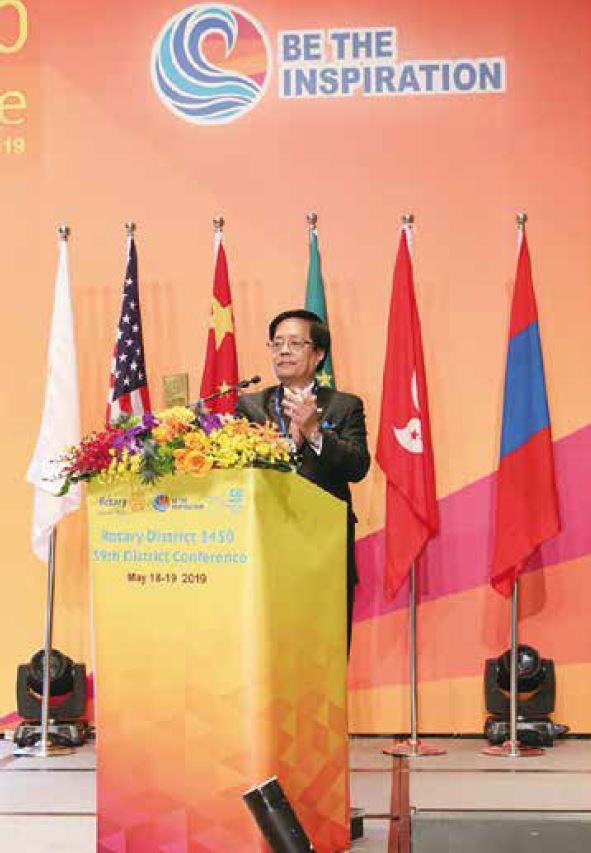
Figure 1. Photograph of Dr Yu-cheung Ho, District Governor (2018-19) was presiding the District Conference in May 2019
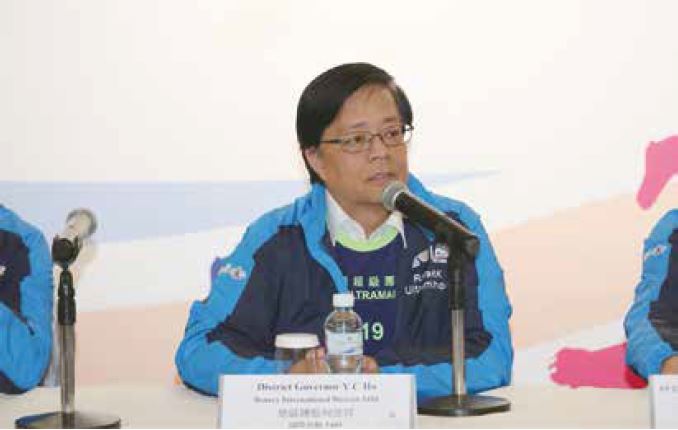
Figure 2. Photograph of Dr Yu-cheung Ho, District Governor (2018-19) of the Rotary International District 3450, at a press conference promoting the Rotary Hong Kong Ultramarathon 2019. The ultramarathon has become a signature event of Rotary in recent years


